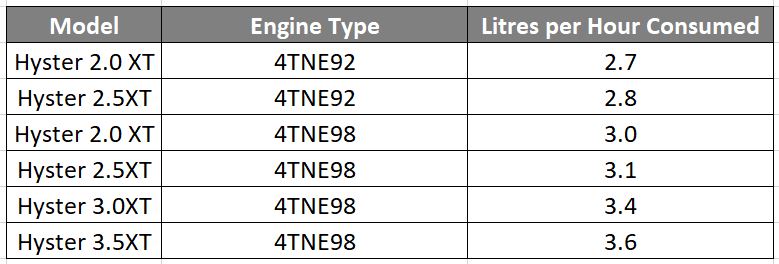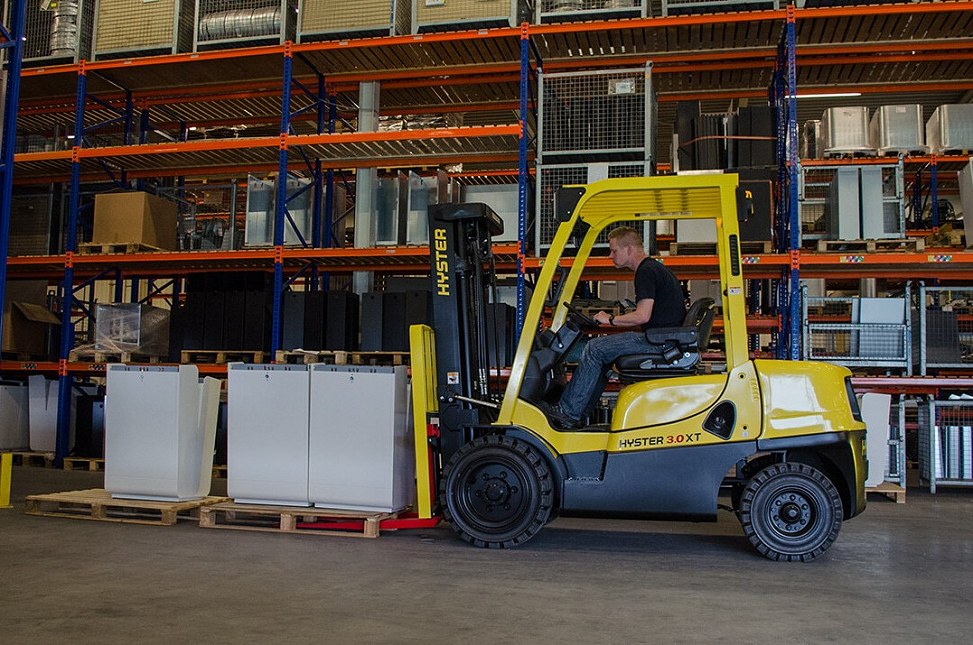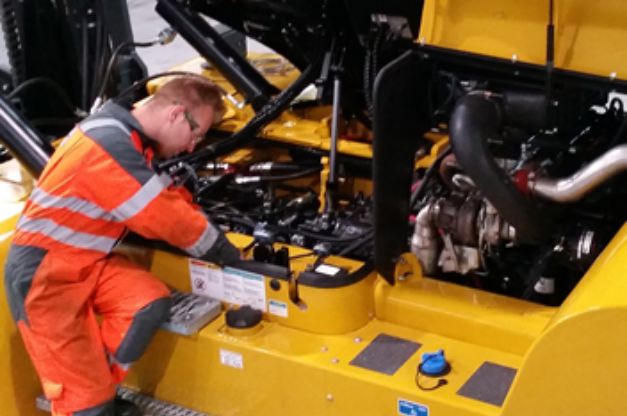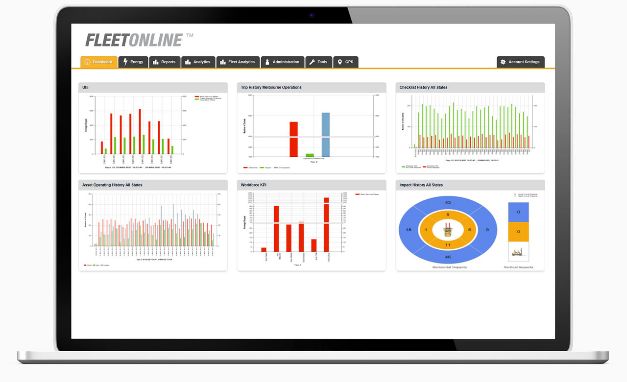How Much Diesel Does a Forklift Use Per Hour?
A common question asked by many prospective forklifts owners is how much diesel fuel does a unit consume per hour of operation?
Similar to a car forklift manufacturers test unit performance and provide guided estimates of fuel consumption, however there are a number of factors that may affect a forklifts consumption throughout operation.
This week’s blog details how much diesel is consumed by standard Hyster 2T – 3.5T counterbalance forklifts, whilst also briefly examining some common factors that need to be taken into account when calculating a forklifts fuel consumption.
How Much Diesel Fuel Does a Forklift Consume?
An example of forklift diesel consumption provided by globally recognised forklift manufacturer Hyster is provided below.

The highly popular versatile Hyster XT forklift series can consume between 2.7L and 3.6L of diesel per hour of operation depending on the lift capacity and engine type.
Fuel consumption values listed above are the average result from A MIL 268C test course. Variations of plus or minus at least 20% can be expected depending on duty cycle & operator driving habits.
Factors That May Affect Forklift Diesel Fuel Consumption
There are a number of factors that can impact a forklifts fuel consumption.
Four of the main factors are discussed below.
1. Size and Weight of Loads
The size and weight of loads being lifted may have a significant impact on the amount of fuel a forklift consumes whilst in operation.
Generally speaking a forklift will consume more fuel to be able to lift heavier loads or higher distances as the energy requirements for the lift are higher.

2. Travel Distances
Forklifts that have to travel long distances whilst fully loaded are likely to consume more fuel due to the extended travel carry heavy loads.
To reduce fuel consumption it is recommended a site survey is undertaken to optimise the locations of pick-up and drop-off zones as well as travel routes within the facility to ensure they aren’t unnecessarily long reducing the overall distances the forklift needs to travel to complete work.
3. Operator Behavior
The way an operator drives a forklift can impact its fuel consumption greatly.
During training operators are advised on best practice to find the right balance between productivity and performance/efficiency.
Operator best practices may include:
- Turning off the machine when it is not in use – An idle running forklift is still consuming fuel albeit at a reduced rate, if left running idle for an extended period of time or on multiple occasions throughout a shift the forklifts fuel consumption will be increased without seeing any productivity.
- Gradual Acceleration – Rather than depressing a forklifts accelerator pedal rapidly seeking fast acceleration, drivers are trained to gradually depress the pedal for smooth acceleration until maximum speed is reached. Faster acceleration consumes more fuel.
4. Preventative and Routine Maintenance
Planned proper maintenance of a forklift not only keeps the unit functioning optimally can also contribute to lower fuel consumption.
Properly maintaining or replacing old parts such as tyres can significantly lower a forklift fuel consumption.
Damaged or underinflated tyres may require operators to drive a forklift harder, demanding more performance from the unit’s engine increasing fuel consumption and decreasing efficiency.

For owners of diesel forklifts telemetry systems such as ForkTrack from Adaptalift Group’s technology partner Speedshield Technologies can monitor and provide accurate fuel level readings for a single forklift or a whole fleet.
By taking a fuel level reading at the start and end of shifts fleet managers and owners can begin to develop a trend of a unit’s fuel consumption across shifts and whether the unit is being operated to maximise productivity whilst consuming the least amount of fuel possible.

For more information on how to maximise your forklifts fuel consumption or to find out how your fleet can benefit from ForkTrack fuel level monitoring contact us on 13 22 54 or fill out our contact form.